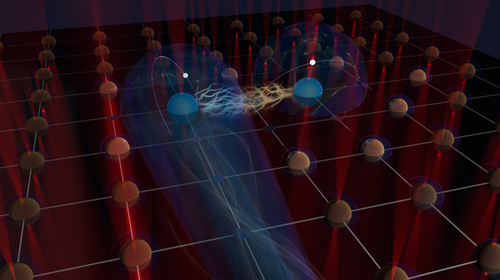Rydberg atoms in ultracold quantum gases offer various applications reaching from quantum optics through quantum simulation all the way to quantum computing. The large success of this platform is rooted in the near-perfect isolation of ultracold quantum gases from the environment, which enables excellent control and detection at the single-atom level.
The strong interactions between Rydberg atoms take a central role in the field and the various emerging applications. In quantum simulations, recent breakthroughs in the control of individual atoms have allowed for simulating quantum spin models of several hundred spins, beyond the realm that can be simulated exactly on classical machines. A new frontier has recently emerged from these experiments in the quest to realize digital quantum computers. For quantum optics applications, Rydberg excitations have been used to switch the optical response of atomic ensembles at the single-photon level. Binding Rydberg atoms in long-range molecules allows for the creation of novel molecular bound states, where quantum control facilitates near-perfect manipulation of all quantum degrees of freedom. Finally, a range of novel directions have emerged in the recent past, including the development of cryogenic experimental setups that promise to open the path towards better isolation of quantum simulators or novel quantum simulation platforms such as circular Rydberg states.
This workshop aims to bring together the world-leading researchers in different areas of Rydberg physics, with the goal to foster exchange and continue the strong sense of community in the field. The span of topics is intentionally kept broad to bring together experts in various fields and enable to open new frontiers in ultracold Rydberg systems.

Copyright: University of Stuttgart
The conference language will be English. The Wilhelm and Else Heraeus-Foundation bears the cost of full-board accommodation for all participants.
